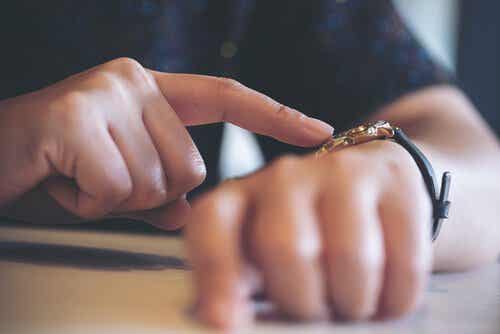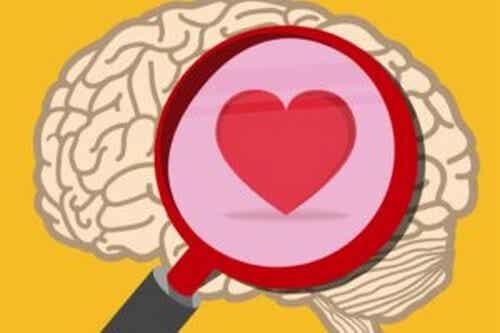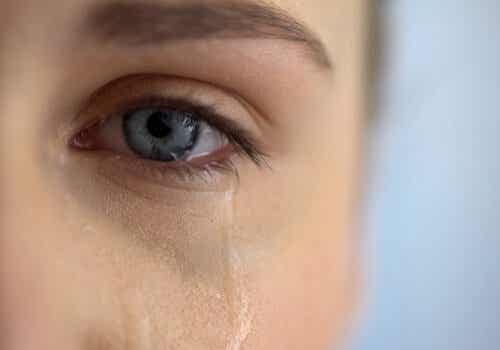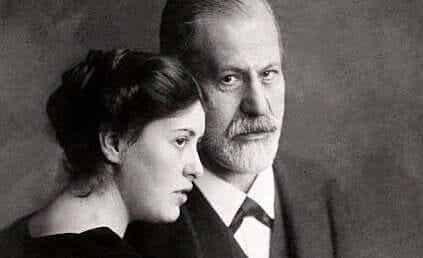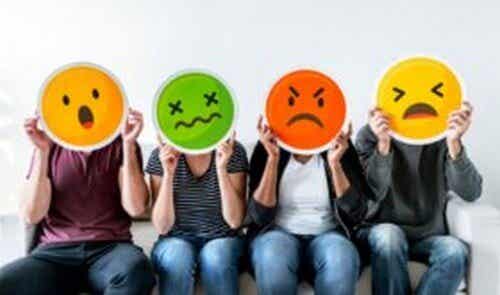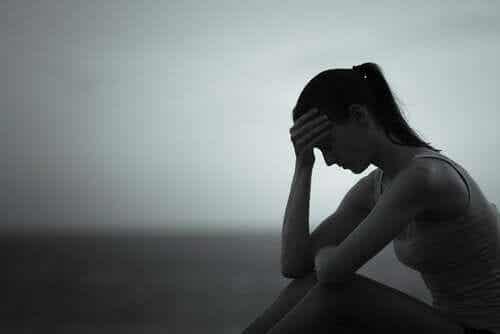The anguish and torment that anxiety generates in us are immense. One of the effects derived from this state is the constant sense of guilt, the belief that you are responsible for everything that happens, that your own suffering is a burden to others ... What should we do in these circumstances?

Written and verified by the psychologist GetPersonalGrowth.
Last update: 15 November 2021
Guilt and anxiety are closely linked, in fact, it is very common to feel defective when one is in the throes of an anxious state. It is a mental approach that leads us to draw conclusions that are harmful to ourselves, often completely wrong. We take on responsibilities that would not be ours or we distort certain situations to the point of generating authentic loads of conscience that increase our suffering.
"I made a mistake and now I'm making the situation worse", "with my behavior I'm sure I hurt that person", "I'm disappointing my family, my partner, my children", “My mom got sick because of me”… and the examples could go on. They are all thoughts that follow the same line, in which in reality the person is not to blame for anything.
He finds himself, however, trapped in a tunnel where anxiety is in absolute control. She believes that her anxiety disorder or panic attacks are due to a problem inherent in her person, an anomaly that overwhelms her and is beyond her control. “How can I be the cause of so much suffering? What is wrong with me?".
Self-blame, feelings of disappointing or hurting loved ones… These ideas fuel the vicious circle of anxiety. If we then add factors such as self-need or obsessive thoughts, we will get a mental health time bomb as a result.
Sense of guilt: an effect of anxiety
There are logical feelings of guilt and irrational feelings of guilt. The former are linked to concrete facts in which one takes responsibility for having generated suffering or having carried out serious actions. On the other hand, irrational guilt is an effect of anxiety and other psychological disorders.
In the context of an anxious state of mind, it is normal for the individual to punish himself for certain facts, for how he feels or even for what he thinks.
The simple fact of being aware that you have a pessimistic mind, who lives in fear or uncertainty, favors the shadow of guilt. Knowing that it cannot be controlled and that one's behavior generates concern in others intensifies the destructive feeling.
Feelings of guilt and shame in anxiety
Here is an interesting fact that emerged from a research published in the PLOS ONE journal conducted at the Karolinska Institute, in Sweden. Anxiety disorders are often linked to guilt and shame. Although different, these feelings are triggered by a common factor: the inability to maintain control over oneself and the resulting malaise.
Feeling guilty means feeling bad about something you've done, said, or felt. Shame is much more damaging because it leads to feel bad for who you are. In other words, it is equivalent to underestimating oneself and, at the same time, to blaming oneself for any circumstance.
How to manage these emotions related to anxiety?
The strategy to calm, soothe and untangle the sense of guilt or shame naturally goes down a single path: focusing on the factor that causes it and intensifies it, namely anxiety.
In these cases they prove to be of great use cognitive-behavioral therapy or acceptance and commitment therapy.
Equally useful is learning to manage complex emotions, as is guilt. Here are some aspects that can help us in this regard:
- Guilt is a mechanism by which we make a moral judgment about our behavior, feeling or thinking. We assume that there is something wrong with us. However, one detail must be kept in mind: anxiety is not a defect, it is not a scourge or a shame. It is a psychological condition that we can and must manage by making a commitment to ourselves.
- We need to stop being our own judges. By punishing ourselves with constant guilt, anxiety will only grow. It is time to treat ourselves with kindness, working on strengthening self-esteem, self-confidence and assertiveness.
- Guilt is fueled by worry. The more we give rise to our worries, the greater becomes the ball of obsessive and often illogical thoughts that feed the sense of guilt. We need to reduce the volume of worry by focusing the mind on other rewarding tasks and activities.
Finally, as Oscar Wilde used to say, one of the worst nightmares of life is to suffer for one's sins. Let's get rid of this burden that very often feeds anxious states.








